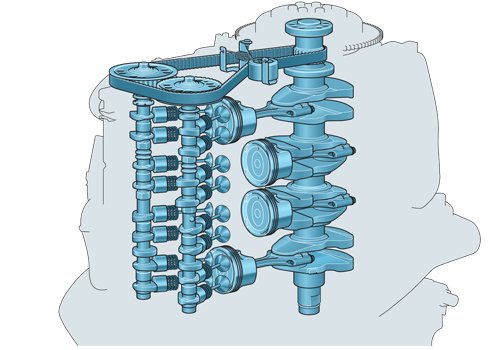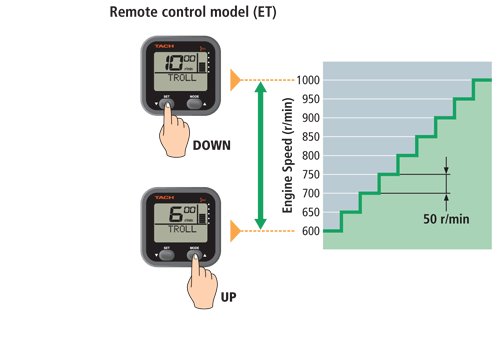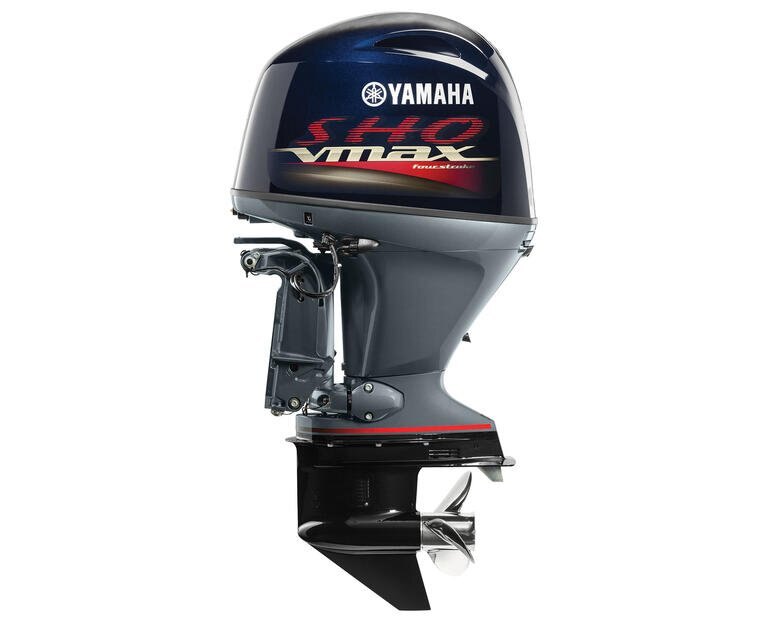
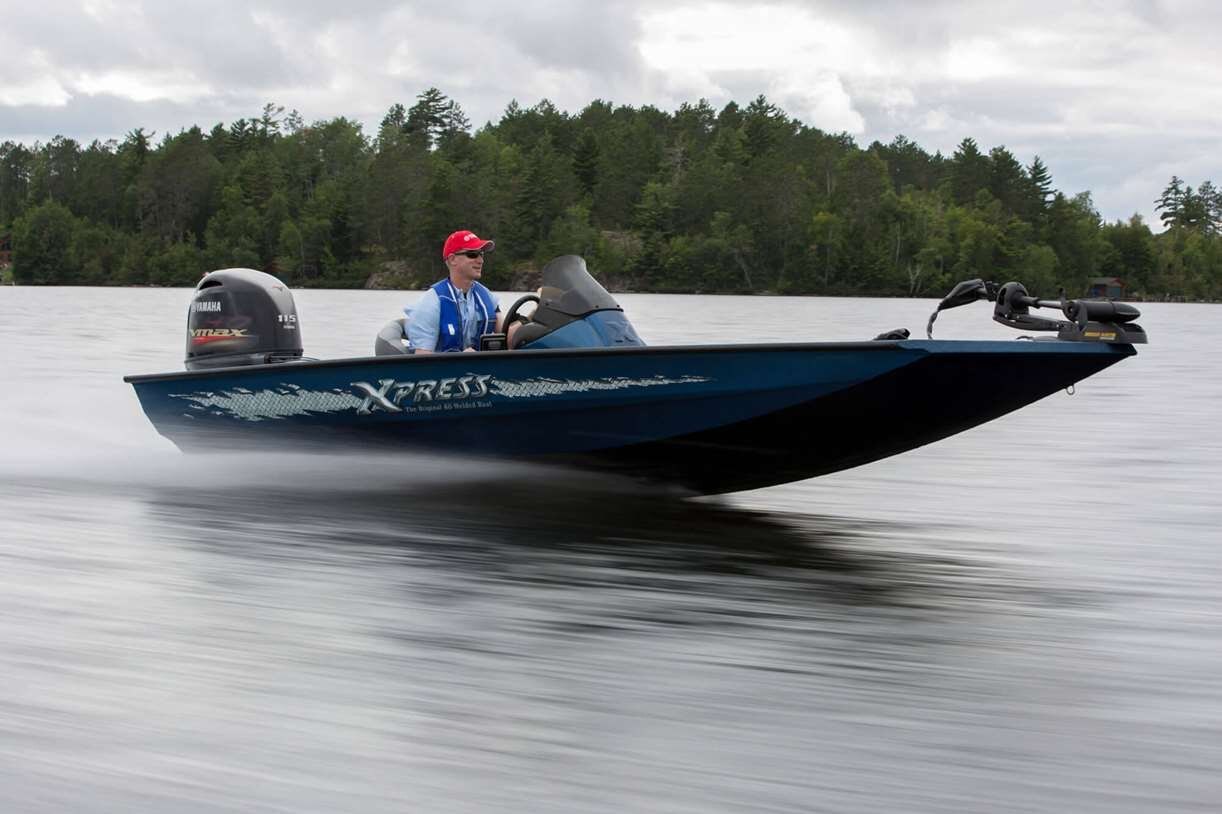
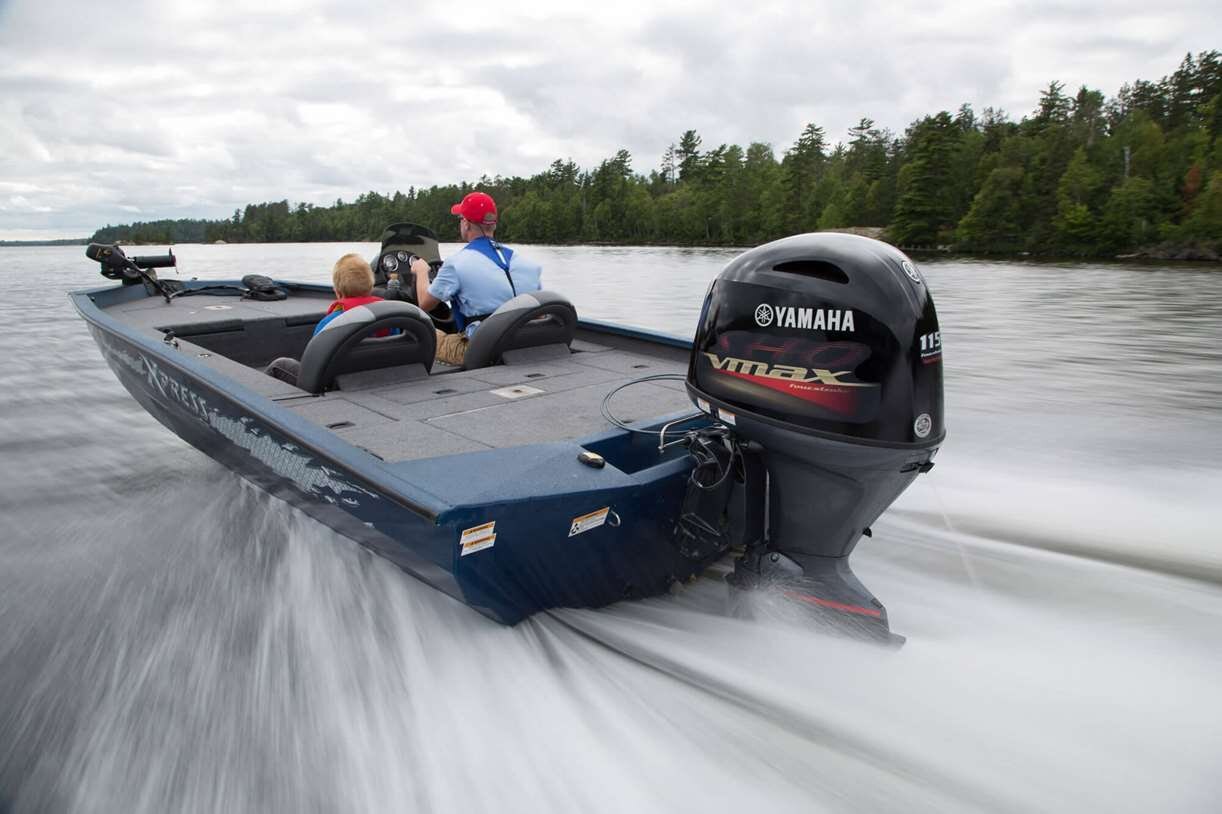

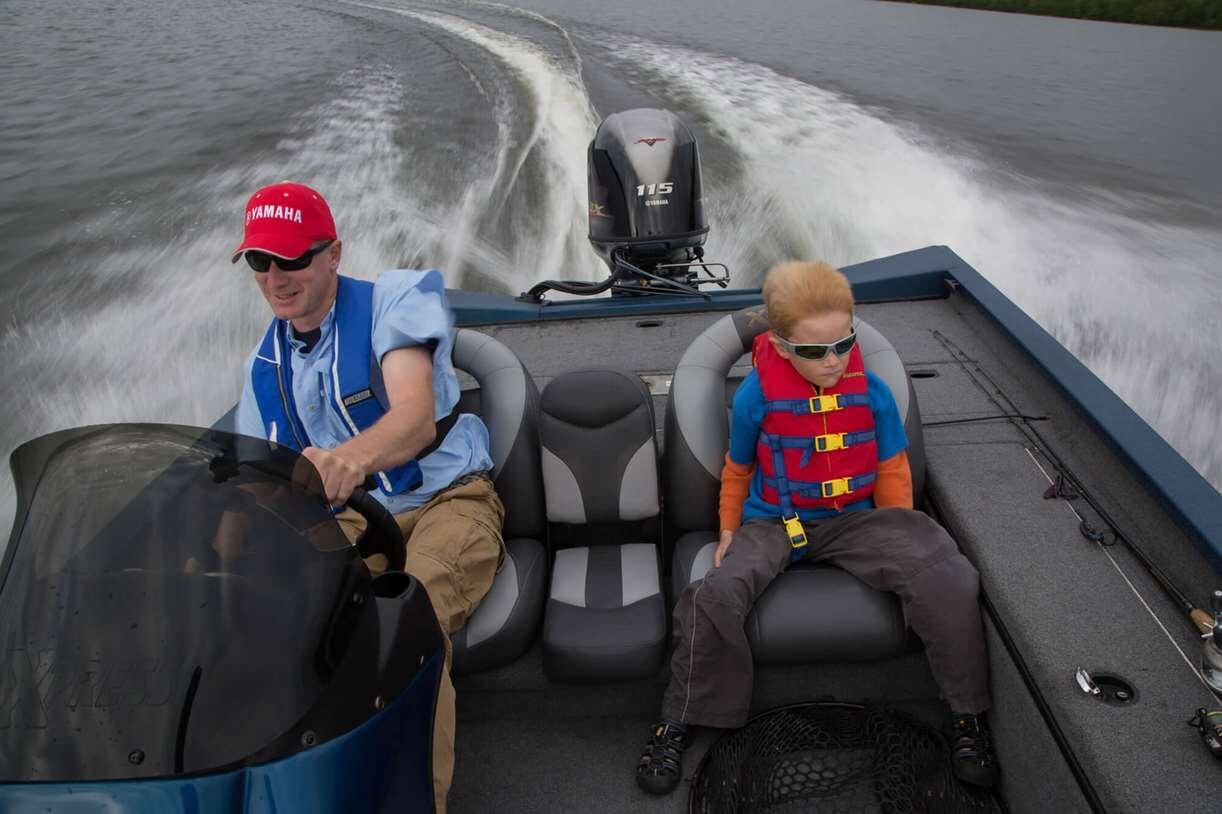


Yamaha VF115 XB VMAX SHO
| Yamaha expands the successful V MAX SHO family to include the 115-horsepower segment - where smaller boats and other craft play. And it's every bit a V MAX SHO, compact, lightweight and capable of performance typically associated with two strokes, but with the convenience and quiet of a four stroke. Who could want more? |
|
POWERFUL & FAST The 1.8-litre V MAX SHO 115 features Yamaha's advanced 16-valve double-overhead cam (DOHC), four-cylinder design, which means better breathing for better performance. Those sixteen large intake and exhaust valves make more power and midrange torque. They are fed by a large (60mm) single throttle body with Yamaha's long-track intake system and a free-flow exhaust. Full-throttle rpm range is 6,300, which means Yamaha can better tailor the gear ratio for low speed thrust and still deliver great top end. A knock sensor, an unexpected feature in this class of outboard, allows the engine to operate constantly at peak output. The result is great top speed, 3.65 miles per hour faster than that of the Yamaha F115. |
|
EASIER FISHING The V MAX SHO 115 is compatible with Yamaha's variable trolling RPM switch (VTS), which allows anglers to adjust the trolling speed in 50 RPM increments from 600 to 1000 RPM using a Yamaha Command Link® gauge. |
- Lightweight: The four-stroke V MAX SHO 115 weighs 377 pounds, and it has the added benefit of not needing two-stroke oil or an oil tank (or the added weight). A competitor's two-stroke weighs 390 pounds. The V MAX SHO 115 is the lightest four-stroke DOHC 115-horsepower outboard on the water. It uses a lightweight composite lower pan and cowling, a single-ram power trim and tilt mechanism and a lightweight mounting bracket.
- Smooth & quiet: Remember, this is a four stroke, so it's quiet by nature. On top of that, Yamaha has harmonized all the inertial mass components and added large rubber engine mounts. The result is smoothness and quiet that will impress.
- Yamaha reliability: The V MAX SHO 115 powerhead design is based on proven Yamaha four-stroke technology. It also uses Yamaha's Phaze Five? paint system, which includes the electro-deposition of anti-corrosive paint on both the inside and outside passages of the engine block. Inside the engine, dimpled cylinder sleeves, like those used on the Yamaha F350, reduce weight and add strength. They also aid in heat transfer and help to keep the engine reliably cooler.
|
LIGHT WEIGHT The four-stroke V MAX SHO 115 weighs 377 pounds, and it has the added benefit of not needing two-stroke oil or an oil tank (or the added weight). A competitor's two-stroke weighs 390 pounds. The V MAX SHO 115 is the lightest four-stroke DOHC 115-horsepower outboard on the water. It uses a lightweight composite lower pan and cowling, a single-ram power trim and tilt mechanism and a lightweight mounting bracket. |
|
SMOOTH & QUIET Remember, this is a four stroke, so it's quiet by nature. On top of that, Yamaha has harmonized all the inertial mass components and added large rubber engine mounts. The result is smoothness and quiet that will impress. |
|
YAMAHA RELIABILITY The V MAX SHO 115 powerhead design is based on proven Yamaha four-stroke technology. It also uses Yamaha's Phaze Five? paint system, which includes the electro-deposition of anti-corrosive paint on both the inside and outside passages of the engine block. Inside the engine, dimpled cylinder sleeves, like those used on the Yamaha F350, reduce weight and add strength. They also aid in heat transfer and help to keep the engine reliably cooler. |


